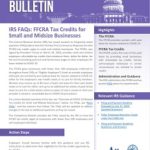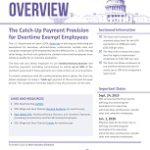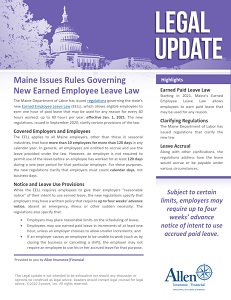Managing student loan debt has become one of the biggest financial planning challenges for many. In the U.S., student loan debt rose to $1.51 trillion last year, according to the Federal Reserve Bank of New York. So, if you or family members are dealing with the burden of budgeting every month for a student loan, you’re not alone.
Fortunately, numerous payment and planning solutions are available to help student borrowers. In addition, this year, the Coronavirus Aid, Relief, and Economic Security (CARES) Act has provided substantial assistance for individuals holding federal student loans. It’s important to remember, though, that the CARES Act’s relief provisions are set to expire on December 31, 2020.
If you’re looking for a long-term solution for managing student debt, you’ll find a variety of considerations and options below to keep in mind.
Student Loan Relief Under the CARES Act
Interest and required payments on federal student loans owned by the U.S. Department of Education are currently suspended, without penalty, through December 31, 2020. On January 1, 2021, interest will start accruing again and borrowers will be responsible for making monthly payments. Auto-debit payments will automatically resume, if this feature was set up prior to payment suspension. If the required payments aren’t made, federal loan servicers may report delinquency for the period beginning January 1.
Income-driven repayment plans. The Department of Education offers several income-driven repayment plans that help you set an affordable monthly payment based on your income and family size. If you’re already on a payment plan but your financial situation has changed, you can update your information to see if you qualify for a new, lower payment amount. The plans are:
- Income-based repayment (IBR) plan. You’ll pay 10 percent of your discretionary income if you’re a new borroweron or after July 1, 2014, and 15 percent if you’re not a new borrower. You’ll never pay more than on the standard plan.
- Income-contingent repayment (ICR) plan. You’ll pay the lesser of 20 percent of your discretionary income or the amount of a fixed payment over 12 years, adjusted according to your income.
- Pay as you earn (PAYE) and revised pay as you earn (REPAYE) plans. Generally, undergraduate borrowers who qualify will pay 10 percent of their discretionary income toward their student loans each month, and after 20 years of on-time payments, the remaining balance may be forgiven (payments may be forgiven after 10 years for those in certain public interest jobs and after 25 years for graduate school borrowers).
Deferment, Forbearance, and Cancellation
Although repaying your student loan may become difficult, ignoring your payments is the worst thing you can do. Instead, talk to your lender about possible solutions. Depending on your situation, you may be able to apply for a deferment, forbearance, or cancellation of your loan.
These programs are not automatic. You’ll need to fill out the appropriate application from your lender, attach documentation, and follow up on the application process. Also, it’s important to keep in mind that interest accrues for most borrowers on a general forbearance (unlike forbearance under the CARES Act).
- With a deferment, the lender grants a temporary payment reprieve, based on a specific condition, such as unemployment, temporary disability, military service, or full-time enrollment in graduate school. For federal loans, the government pays the interest that accrues during the deferment period, so the loan balance doesn’t increase. A deferment usually lasts six months, and the total number of deferments that can be taken over the life of the loan is limited.
- With a forbearance, the lender has discretion to grant permission to reduce or cease loan payments for a certain period of time, though interest will continue to accrue—even on federal loans. Economic hardship is a common reason for forbearance. A forbearance usually lasts six months, and the total number permitted over the loan’s term is limited.
- With a cancellation, a loan is permanently erased, but qualifying isn’t easy. Cancellations may be allowed due to the death or permanent total disability of the borrower, or if the borrower teaches in certain geographic areas. Typically, student loans can’t be discharged in bankruptcy.
Loan Consolidation
With loan consolidation, you combine several student loans into one loan, sometimes at a lower interest rate, allowing you to write just one check each month. You need to apply, and different lenders have different rules about which loans qualify for consolidation. Generally, you can choose an extended repayment and/or graduated repayment plan in addition to a standard repayment plan.
Student Loan Forgiveness Programs
In addition to the repayment assistance programs described above, the federal government offers student loan forgiveness to qualified borrowers. Although the benefits can be substantial, you should carefully consider the potential long-term costs associated with changing you career path. Available programs include:
- Public Service Loan Forgiveness (PSLF). The PSLF program forgives the remaining balance on direct loansafter the borrower has made 120 qualifying payments (10 years’ worth) while working full-time for a qualifying employer. A loan simulator tool that can help you assess eligibility is available at studentaid.gov/loan-simulator.
- Teacher Loan Forgiveness (TLF). Borrowers must teach full-time for five complete and consecutive academic years in a low-income school or educational service agency and meet other qualifications. The TLF program offers forgiveness of up to $17,500 on direct subsidized and unsubsidized loansand your subsidized and unsubsidized federal Stafford loans.
Refinancing Option
Refinancing may be a good option for lowering your monthly loan payments. But, to do so, you must already have a private loan or be willing to convert your federal loan to a private loan—and this could mean losing some benefits. A federal loan cannot be refinanced as a new federal loan with a lower interest rate. Be sure you understand the cons and pros of refinancing:
Cons:
- Borrowers lose the option for student loan forgiveness.
- Private student loans don’t offer income-driven repayment plans.
- Deferments on private student loans are not as generous as on federal loans.
- Variable interest rates could increase.
- There’s no grace period for starting payments after leaving school.
Pros:
- Interest rates can be reduced, creating substantial savings.
- Less interest means loans can be paid off faster.
- Loan management is easier if multiple loans are combined.
- Monthly payments can be reduced.
- A cosigner can be released from the new loan.
Need Additional Information?
For assistance in evaluating your options, please a member of the Allen Financial team. We’ll talk through these strategies for managing student debt and explore other planning solutions that can help you get on track to financial security.
This material has been provided for general informational purposes only and does not constitute either tax or legal advice. Although we go to great lengths to make sure our information is accurate and useful, we recommend you consult a tax preparer, professional tax advisor, or lawyer.







